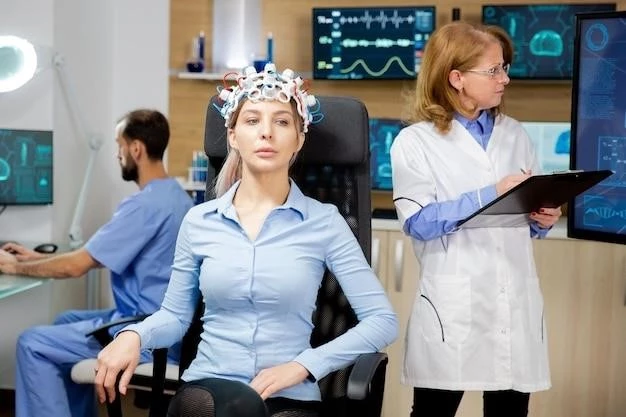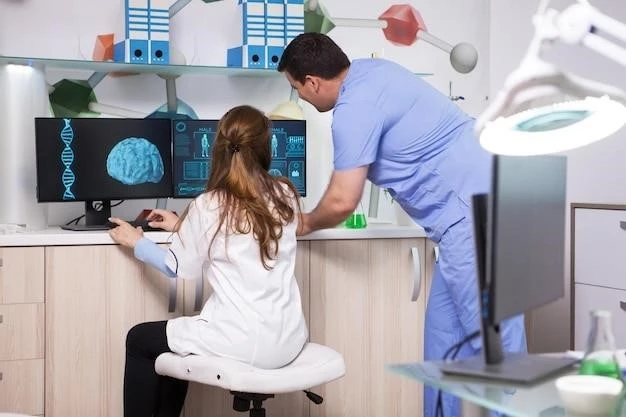Causes of Cerebellar Agenesis
– Genetic Causes
Genetic mutations or abnormalities in genes related to cerebellar development can lead to cerebellar agenesis, impacting brain formation.
– Environmental Factors
Exposure to toxins, infections, or other harmful substances during pregnancy may contribute to the development of cerebellar agenesis in some cases.
– Developmental Issues
Abnormal development of the cerebellum during fetal growth can result from various factors, leading to cerebellar agenesis in some individuals.
Symptoms of Cerebellar Agenesis
– Motor Impairments
Muscle weakness, tremors, and difficulties with fine motor skills are common motor impairments associated with cerebellar agenesis, impacting daily functioning.
– Balance and Coordination Issues
Individuals with cerebellar agenesis may experience challenges in balance, coordination, posture, and movement control, affecting daily activities and mobility.
– Cognitive Challenges
Issues with attention, learning, memory, and executive functions are cognitive challenges that individuals with cerebellar agenesis may encounter, impacting academic and social aspects of life.
Treatment Options for Cerebellar Agenesis
Physical Therapy
Occupational Therapy
Assistive Devices
– Physical Therapy
Physical therapy aims to improve motor skills, balance, and coordination through tailored exercises and interventions, enhancing overall functional abilities in individuals with cerebellar agenesis.
– Occupational Therapy
Occupational therapy focuses on improving daily living skills, fine motor abilities, and adaptive behaviors to enhance independence and quality of life for individuals with cerebellar agenesis.
– Assistive Devices
Assistive devices such as mobility aids, adaptive tools, and communication devices can improve independence and functionality for individuals with cerebellar agenesis, facilitating daily activities.
Prognosis for Individuals with Cerebellar Agenesis
Long-Term Outlook
Quality of Life Considerations
Potential Complications
– Long-Term Outlook
The long-term outlook for individuals with cerebellar agenesis varies based on the extent of symptoms and response to treatments, impacting overall quality of life and functional abilities.
– Quality of Life Considerations
Factors such as access to support, therapies, and societal understanding play a crucial role in enhancing the quality of life for individuals with cerebellar agenesis, fostering holistic well-being.
– Potential Complications
Complications of cerebellar agenesis may include challenges in daily functioning, social interactions, and emotional well-being, requiring comprehensive management strategies to address individual needs.
Diagnosis of Cerebellar Agenesis
Imaging Studies
Genetic Testing
Clinical Evaluation
– Imaging Studies
Imaging techniques like MRI and CT scans play a key role in diagnosing cerebellar agenesis by visualizing structural abnormalities or absence of the cerebellum in affected individuals.
– Genetic Testing
Genetic testing can identify specific gene mutations associated with cerebellar agenesis, aiding in diagnosis and providing insights into the underlying genetic factors contributing to the condition.
– Clinical Evaluation
Through clinical assessment, healthcare professionals can evaluate symptoms, developmental milestones, and neurological function to diagnose cerebellar agenesis and determine appropriate interventions.

Research Advances in Cerebellar Agenesis
– Current Studies and Findings
Ongoing research explores the genetic mechanisms, neural pathways, and potential treatments for cerebellar agenesis, aiming to enhance understanding and therapeutic options for affected individuals.
– Emerging Treatments
Novel therapies such as stem cell research, gene therapy, and neurorehabilitation techniques show promise in mitigating symptoms and improving outcomes for individuals with cerebellar agenesis.
– Future Directions
Future research aims to explore precision medicine approaches, innovate therapeutic strategies, and promote greater inclusivity in the management and care of individuals with cerebellar agenesis.
Living with Cerebellar Agenesis
– Coping Strategies
Implementing stress-management techniques, building support networks, and fostering resilience are essential coping strategies for individuals living with cerebellar agenesis to navigate daily challenges effectively.
– Support Systems
Family, healthcare professionals, and community resources can provide vital support and assistance to individuals with cerebellar agenesis, enhancing overall well-being and quality of life.
– Personal Stories and Insights
Hearing personal experiences and insights from individuals living with cerebellar agenesis can provide valuable perspectives and inspiration for others facing similar challenges, fostering a sense of community and understanding.
Genetic Factors in Cerebellar Agenesis
– Inheritance Patterns
Cerebellar agenesis can have both genetic and non-genetic causes. Understanding inheritance patterns is vital for genetic counseling and management strategies in affected families.
– Genetic Counseling
Genetic counseling provides families with information on the genetic basis of cerebellar agenesis, recurrence risks, and available testing options, empowering informed decision-making and family planning.
– Impact on Family Members
Caring for individuals with cerebellar agenesis can impact family dynamics, emotional well-being, and daily routines, highlighting the importance of familial support, education, and resources.
